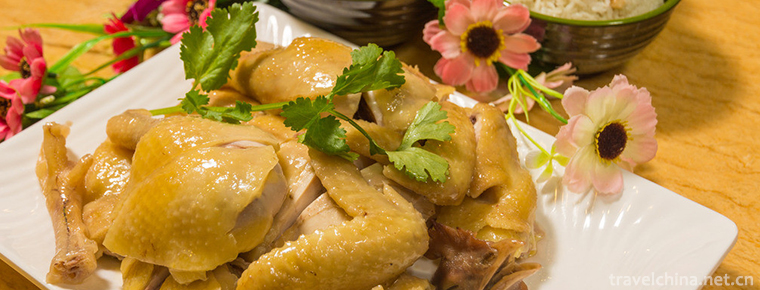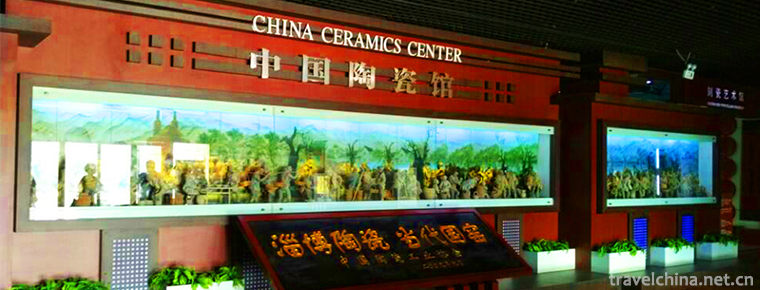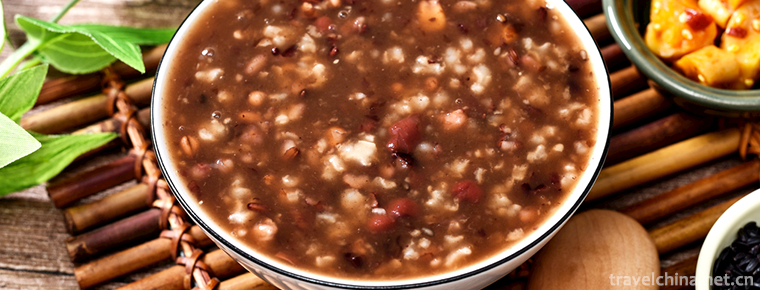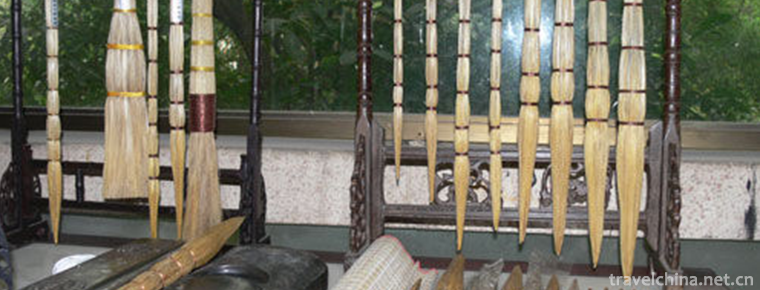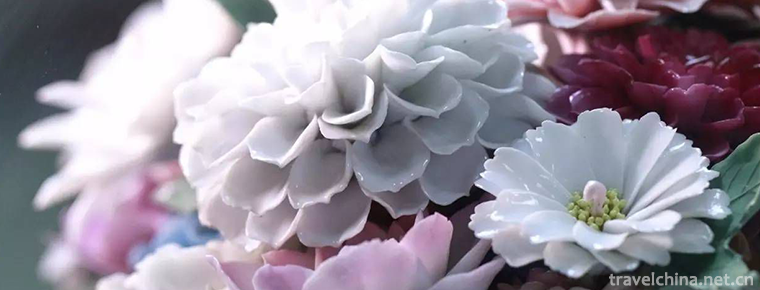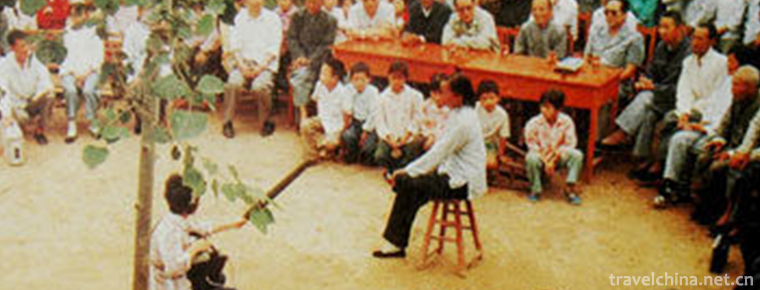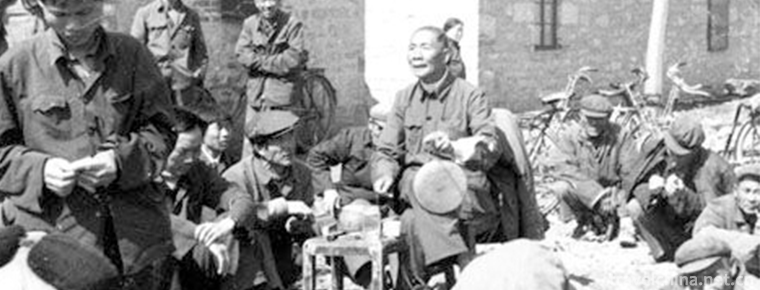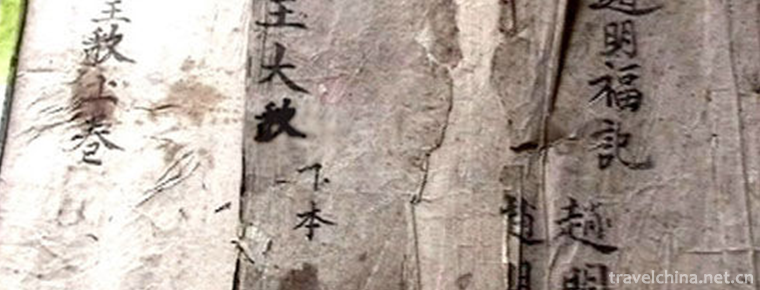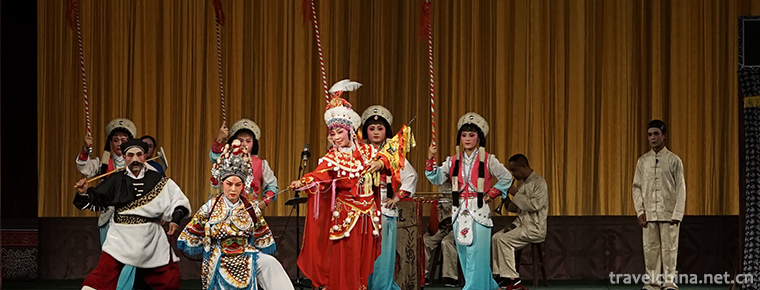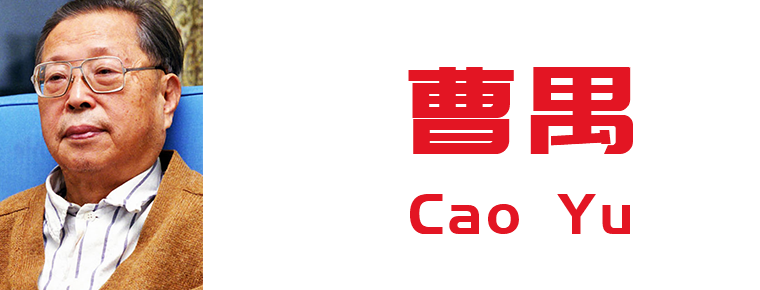Xinyiquan
Xinyiquan
Xinyiquan, one of the traditional Chinese boxing, is an important part of Chinese martial arts culture and Oriental mysterious culture. It is a wonderful flower in the hundred gardens of Chinese martial arts.
According to legend, Xinyiquan was created by Yue Fei, a famous national hero in the Song Dynasty. Jijike, from Ming to Qing Dynasty, visited a famous teacher in Zhongnanshan, Shaanxi Province, and received advice from different people. He awarded "Yuewu Mu Quan Pu" to study and practice day and night. In middle age, he participated in the fight against Qing Dynasty and restored Ming Dynasty, lived in seclusion in Shaolin Temple for 10 years, and passed on his art to Ma Xueli, Henan Province, and Ca Martial. Since Jiji's founding of the sect, after hundreds of years and more than ten generations of inheritance, a huge system has been formed.
Especially Xinyiquan has a strong fighting ability. It can hit the enemy with head, shoulder, elbow, hand, crotch, knee, foot and other parts. It is very practical. Therefore, it is valued by domestic and foreign martial arts experts and loved by the majority of martial arts fans.
On June 7, 2008, Xinyiquan was listed in the second batch of national intangible cultural heritage list with the approval of the State Council.
Legend of Origin
brief introduction
Chinese Wushu, with a long history, a long history, extensive and profound connotation, is the embodiment of China's ancient culture. Ten true shapes are the essence of Xinyiquan, which is an ancient traditional fighting style with strong fighting skills. Ten true shapes are simple, simple and pure; Yin and Yang are mutually beneficial, both inside and outside are repaired; both rigidity and flexibility are combined, form and spirit are combined; they can be quick and slow, take good care of beating well; combination of movement and quiet, mind and mind are connected; they stress the simultaneous development of head, shoulder, elbow, hand, hip, knee and foot seven stars. It is a rare type of boxing in Chinese martial arts, suitable for all ages. Ten true shapes, drilling up and down, drilling, bundle opening and closing; advancing and retreating freely, moving and turning the opposite side, as you like; the whole body should be the enemy, and the whole body should be the fist. Practice to the superior realm, you can move vertically and horizontally, so that you can see in a flash, really the so-called moving invisible, hit out invisible. This book introduces in detail the history of Xinyiquan and the basic characteristics and essentials of Xinyiquan. This book is comprehensive in content, rich in pictures and texts, easy to understand and easy to understand. It has strong practicability and has a positive effect on popularizing mind boxing.
origin
According to legend, Xinyiquan was created by Yue Fei, a famous national hero of the Song Dynasty. Yue Fei was resolute and resourceful, and bravely won the third army. Zhou Dong, a famous teacher since childhood, practiced writing and martial arts, followed Chen Guang in knife and gun skills, especially in big gun skills. In the long-term anti-gold war, guns were turned into fists and soldiers were trained. This fist is fierce and extremely fast. It means a lot of changes. In actual combat, guns can be used far and fists can be used near. When Hou Yuefei was killed, the fist disappeared and rarely spread.
In the early Ming and Qing Dynasties, Ji Jike, a famous teacher from Shanxi Province, visited Zhongnan Mountain, met with different people to give advice, and awarded "Yuewu Mu Quan Pu" to study and practice day and night. In his middle age, Ji Jike lived in Shaolin Temple for 10 years because he participated in the fight against Qing Dynasty and restored Ming Dynasty. He passed on his art to Ma Xueli in Henan Province and Cao Jiwu in Anhui Province. Since Jiji's founding of the sect, after hundreds of years and more than ten generations of inheritance, a huge system has been formed. In the process of inheritance, due to the influence of objective and subjective factors such as time, region, culture, belief, religion and custom, three mainstream schools with clear and wide representation have gradually formed. One is Henan Xinyiquan represented by Ma Xueli, the other is Dai Longbang, Dai Erlu, Dai Liangdong and Dai Kui after Cao Jiwu. The third is Shanxi and Hebei Xinyiquan represented by Dai Longbang, Li Lao Neng, Che Yizhai and Guo Yunshen after Dai Erlu. Although the styles of each school are different, the boxing theory and boxing method are the same, and they all adhere to a boxing score: Dust-keeping Techniques in Caves and Ancient Boxing Spectrum of Liuhe Xinyi. Ancient motto says, "Teachers can change their fists, but they must not (or'can') change their scores." That is to say, the predecessors of Xinyiquan warned their descendants not to go too far in teaching for decades or even centuries. Mr. Wang Hong, a master and skilled attacker of a generation, often warned his disciples that "Dictionary is a teacher!" Boxing score is a teacher! No matter who is, how old is the seniority, how high is the status, as long as its words and deeds do not match the spectrum of boxing, it is not the real inheritor of mind boxing, it is extremely sad and wrong! "
1: Xinyiquan of Henan School is one of the three main schools of Xinyiquan. Xinyiliuhequan is an ancient Neijiaquan. It is famous for its unique skills, simplicity and practicality, powerful fighting skills and strong strength. Since the true biography of Ma Xueli of Luoyang people in Henan Province, it has been circulated secretly among Hui people for hundreds of years, and it is rare for outsiders to see it. Ma Xueli, Hui, Luoyang Renshi, the ancestor of Xinyiquan in Henan Province, when he was 13 years old, he grazed sheep everyday in Shifangyuan in the middle reaches of Luhe River. He met a hermit (according to legend, Ji Jike) who was eight feet tall, sane and healthy, and had to be white. He taught Shenquan orally and personally for seven years. Ma Xueli can pass it on. One day, Master Ji told Ma Xueli, "I'm going away, you have to work hard." Ten years later, you can try at Shaolin Temple.
Ma Xueli practiced hard all day and night in the cold, summer, spring and autumn. His mind, mind and meridians were all connected. Ten years later, the old abbot of Shaolin was quite satisfied when he went to Shaolin Temple to try his best. He said, "I am a good friend with your teacher, and I know you will come to try your best." After Ma Xueyi was accomplished, bodyguards made no mistakes for ten years in order to make a living. At the invitation of Henan Zhifu, he served as the government Yadufu for 10 years. Old people return home to teach "Xinyiquan". There are many scholars, including Zhang Zhicheng, Ma Xing and Ma Sanyuan. Ma Xing Branch has been handed down in Luoyang for seven generations. Luoyang Xinyiquan is represented by single handed, cross handed and four beats. It has no ten shapes, but integrates all shapes into various specific requirements. Practice Dantian Gong while practicing each one. Be vicious and quick, pay attention to actual combat.
Zhang Zhicheng's branch is the most widely circulated. Now it belongs to Zhang Zhicheng's branch in Henan, Shaanxi, Shanxi, Anhui, Shanghai, Hong Kong and Zhuhai. Henan School of Xinyi Liuhe Quan has been taught among some Hui people. The selection of apprentices is very strict, and its development is relatively slow. It maintains the original style of Xinyiquan better. The movement is simple, the function is infinite, the fixed form is the pile, the moving form is the fist, the connotation is rich. There is no whole set of drills and solo routines. The mind takes one action as one, ten shapes and one action as one. Requirements in practice: body coordination, internal and external integration, requires the whole body up and down, no movement, no stop, no stop, no inconsistency; internal requirements; "mind and agreement, will and Qi, Qi and strength" external requirements; "hand and foot, elbow and knee, shoulder and crotch". In every move, we should concentrate our attention, wrap up our energies, and then concentrate our energies. We should have the spirit and explosive elasticity to burn our bodies. Six body shape requirements; a six-body chicken legs, dragon waist, bear wings, Eagle catch, tiger embrace the head, thunder six-force integration. A body with five vigorous stamping, thrusting, wrapping, bundling, decisive five vigorous in one. Put on your back and get up. Hand at will, force falls with the sound. Rise fast like a tornado, foot out must step on the middle door, force to be rigid, fierce, fierce, poisonous, fast, the outside seems rigid, but actually soft, highly coordinated body movements, strong and flexible, fast and flexible movement. Outward appearance, internal understanding, smooth, limbs, Qi and blood strong, flexible. Therefore. Practicing Xinyiquan has very high practical value in fitness and fighting skills.
2: Dai's Xinyiquan originated in Qixian County, Jinzhong City, Shanxi Province. Dai Longbang, the founder of Dai's Xinyiquan, was born in Xiaohan Village, Qixian County, Shanxi Province, in the 59th year of Kangxi (1720) of Qing Dynasty, died in the 14th year of Jiaqing (1809). At the age of 89, Dai's Xinyiquan was a martial-loving, intelligent, diligent, meticulous and meticulous person. Tao Xia studied martial arts, inherited the Yiquan handed down by his grandfather, Dai Bomiao, and inherited the mystery of Yiquan. He later inherited Ji's Yiliuhequan. He was taught by Cao Jiwu, by Fu Shan, by Inner Gong Xinquan (Xiao Zhou Tiangong), and by combining various martial arts (mantis, Bagua, etc.) to create Dai's Yiquan. Wushu regards him as the founder of Dai Shiyiquan.
Dai's Xinyiquan has been spreading in Qixian County for 200 years. Dai Longbang's father and son and their descendants, in line with the purpose of preferring to lose biography rather than spread it indiscriminately, have a very small scope of transmission. In the early days, only direct relatives of the Dai family were allowed, but later they expanded to the same family members with the same surname, but there were few people. People in Qixian often said, "Dai family boxing is only heard of, but not Dai family practicing boxing." Dai Jiagao resides in a deep courtyard and practises boxing in public places. He is wealthy and does not need to teach boxing to keep fit. Moreover, when Dai Shi passed on boxing, he only passed on Xingyi Quan, a disciple of other surnames, and a small number of Huiyi Quan. Therefore, after wearing it, the world knows Tangyi Quan, but seldom hears Xinyi Quan.
Historically, Dai's Xinyiquan in Shanxi has maintained its primitive style of boxing due to the influence and restriction of Dai's family's "family training" of "passing only Dai's surname but not from other families". Dai's Xinyiquan tradition is mainly split, drill, collapse, gun, horizontal pentagon, dragon, tiger, monkey, horse, snake, chicken, swallow, kite, hawk, bear decagon, black cow, cat, cat on the tree, hungry dog, wild horse practice trough, snake pulling grass, goldfish shaking scales, kite through seven small-shaped, wrapped, practiced, drilled three punches, collapse, back, gun three sticks. The seven steps of Dantian Gong include raising, sitting, opening, sluice, smashing, erecting and shooting, one to five times of Mantis sluice power thumping, top lifting, cloud collar, exhibition and interception, crouching monkey power pile, Hunyuan pile, Sancai pile, Liangyi pile, Tongzigong, etc.
3: Li Lao-neng was named Feiyu in 1807. He was the creator of Xingyi Quan, a village in Douwangzhuang, Shenzhou, Hebei Province.
At the beginning of Qing Dynasty, Xingyiquan was widely spread in Shanxi, Henan and Hebei, and many famous players emerged in recent hundred years. In 1914, Hao Enguang, a Xingyi boxer, traveled to Japan to teach students studying in Japan. He introduced Xingyi boxer to foreign countries. Since the founding of the People's Republic of China, Xingyiquan has been listed as a national Wushu performance and competition item, which has been carried out all over the country. In addition, in Southeast Asia, Japan and the United States, there are also body and mind boxing traditions, and there are specialized groups and publications.
Xingyiquan is based on five elements (split, jump, drill, gun, horizontal) and twelve forms (dragon, tiger, monkey, horse, chicken, kite, swallow, snake, kite, bird terrace, eagle and bear). Its stake method is based on three body styles. In some areas of Shanxi, the basic pile methods are "standing in Dantian" and "six-in-one". Other single-practice routines include five-line chain, miscellaneous hammer, Eight-style boxing, four-handed boxing, twelve-hong hammer, entrance and exit holes, five-element combination, dragon-tiger fight, eight-character skill, upper, middle and lower hands. There are three sets of guns, five-fired guns, shelter guns and nine sets of rings in the training routine. Instrument exercises are mainly about knives, guns, swords and sticks. They are usually named after three-in-one, six-in-one, link-in and three-in-one.
social influence
Taoist influence
Taoist thought is the cornerstone of the formation of national culture. Since the Spring and Autumn Period, Taoist thought has been influencing the formation of other Chinese cultures and schools, and mind boxing is bound to be influenced by Taoist thought.
There is a poem in The Book of Six Combinations of Mind and Mind, which says, "If there is no reason to take three steps and divide them into tomorrow, earth and man, we should first practice the spirit of this height and position." From then on, we can see that the theory of Xinyiquan and Taoist thought are one and the poem can not be more clear. As I have said before, Taoist practice emphasizes "harmony of heaven and man", Taoist outlook on life is "I can't help my fate from heaven". Laozi said, "Man and earth, earth and heaven, heaven and earth, and Tao follow nature". He also said, "Weak is better than strong, soft is better than rigid". "The most gentle in the world, the strongest in the world." And Xinyiquan is just Taoist thought, which occupies a large proportion. Therefore, there are "Heaven is a big day, man is a small day" in the book of Quan Pu. The practitioners of Xinyiquan (also said to be the three emperors) also work together from the top, middle and bottom of the human body. This is the "unity of heaven and man" of Xinyiquan. 。 And the practitioner's "human roots are above, tree roots are below", and human roots are above, so guarding the cave must guard the mouth above. The book tells us that there are three steps of "pangen". Therefore, the cultivation of mind boxing should start from the "hole" (i.e. mouth). The practice of Xinyiquan begins with "guarding holes" at the entrance of the hole. It is necessary to "close the mouth and buckle the teeth on the top of the tongue and the palate on the top of the tongue". The buckle is like closing the door at home. The palate on the top of the tongue is the same as inserting the door bolt after closing. This is the upper practice method of Xinyiquan. In the middle of the practice is to keep Dantian or gas through Dantian, there is also a hole that is the door of life, that is, the door of human life. The lower part of the practice is to guard another "hole", which is the human anus, the lower part of the mind boxing is to "lift anal valley". "Xinyi Liuhe Quan Pu" said in "Zhou Tianfa" that "tightly grasp the Valley Road to mention, the end of the collar to clamp bones together; Jade pillow sad to see the top, to go to the bottom of Dantianji. The upper part of Xinyiquan "closing mouth and buckling teeth", the middle part of the "Qi through Dantian", and the lower part of the "valley way lifting" are all key points for practitioners to get through the former governor's two veins. After the governor's two veins are opened, the whole body can get through Qi and blood and relax the meridians and activate collaterals. Only by relaxing meridians and activating collaterals, can Qi and blood flow be smoothed, and the body's essence, Qi and spirit be sufficient. The "dust skill" of Xinyiquan is the earth and the world of the red dust, while the skill is the body skill, the technology and the combat skill of Xinyiquan. All these exercises should start with "packing roots". In a word, the training of treading on the legs should start with "combining rigidity with softness".
Confucian influence
The traditional culture of the Chinese nation can not be separated from Taoism and Confucianism. Therefore, Confucianism must also influence Chinese Wushu, especially Xinyiquan Wushu. This can be found in Xinyi Quan Pu: "Those who hear Confucius'language power, Gaishande does not advocate it." Nevertheless, Sima must be used in the meeting between valleys. In addition, there is a reason for Wumen to say that words do not go to the ear, and it is also indispensable for the sincerity of force. Therefore, he took care of his family, his life and his fist. We know that Confucius created the Confucian doctrine of "the mean" from Laozi, and Xinyiquan also pays special attention to the cultivation of the "neutral" spirit, which is the influence of Confucianism on Xinyiquan culture. It is said that when Confucius graduated from Laozi's School of Taoism, Laozi wanted to take a test of Confucius, but he did not speak with his mouth open. If ordinary people were at a loss, the wise Confucius immediately understood and said, "Ah, teacher, you are so old that your tongue (soft) still exists, but your teeth (rigid) are already gone. This shows that in the world pure rigidity can not be, but if it is too soft, of course not, it must be combined with rigidity and softness. Lao Tzu nodded, admitting that Confucius realized the truth that "the rigid are easy to break, the flexible are easy to control". Therefore, according to Taoism and Laozi's suggestion, Confucius summed up the idea of "sticking to both ends of it" and created the Confucian doctrine of "the doctrine of the mean". Xinyiquan Wushu culture also realized that "the rigid is easy to break, the soft is easy to control", so Xinyiquan pays special attention to "the combination of rigidity and softness, Yin and Yang complement each other". This is also the internal and external training of mind boxing. Therefore, the practice of mind-mind six-way boxing should be "closed mouth and button teeth" (rigid), "tongue top and jaw" (soft). The combination of the two forms the theory of mind-mind six-way boxing "rigid and flexible combination".
The culture of Xinyiquan is not only full of Taoist thoughts and methods of cultivation, but also draws lessons from and introduces Confucianism and methods of cultivation of self-cultivation, which are mainly manifested in the "neutralization" of Confucianism. I pointed out in the article "practicing Kung fu, neutralizing wu" that the practice of "neutralizing" is the highest realm of mind boxing. "Neutralization" is one of the earliest categories in Chinese traditional philosophy. It has the strong color of the Chinese nation. Confucius has a very high indication of "harmony", which is the "doctrine of the mean" that he proposed to "stick to both ends of it". In traditional health preservation, Dong Zhongshu, a Confucian in the Western Han Dynasty, put forward the theory of "neutralizing health preservation". He once said, "Those who can neutralize health preservation will have a very long life". From the above, we can see the influence of Confucianism on Yiquan culture.
The principle of Xinyiquan for nourishing Qi is that "Qi is powerful, but no Qi is powerless". Therefore, there is "nurturing spiritual roots, nourishing spirits, nourishing merit and nourishing Taoism to see naivety"; Dantian nourishes thousand-day treasures, and twelve thousand gold does not belong to human beings". And Guan Guan also said, "If you have qi, you will live; if you have no gas, you will die; if you live, you will live with it." Mencius's famous saying: "Fu Zhi, Qi Shuai also. Qi is full of body. These famous quotations are more clearly quoted in the spectrum of Xinyi Liuhe Quan to illustrate the unity of Xinyiquan theory and Confucianism.
Military influence
In Xinyiquan culture, not only Taoism and Confucianism are included, but also many military theories are quoted, especially the military thoughts of Sun Tzu, Zhuge Liang and others. Such as "harmony between man and nature", regardless of Taoism and Confucianism. The same is true of mind boxing, so the book of boxing says, "Heaven is a big day, man is a small day". Zhuge Liang, a military strategist, once said, "The way to use troops lies in people." In his article "Forces", he once said, "There are three aspects of the potential of a man's army: one is the sky, the other is the earth, and the other is the man". It can be seen that the thought of the soldier is consistent with the culture of Xinyiquan.
Xinyiquan emphasizes the combination of rigidity and softness, and so does Zhuge Liang's military thought. As he said in "General Gang", he said, "The general keeper is rigid and flexible, so he is strong by weakness and rigid by flexibility. Pure and weak, it is bound to be cut, pure and strong, it is bound to die, not soft and not rigid, the length of the Tao. He also said, "A good fighter is not angry, a good winner is not afraid." This is consistent with the principle of Xinyiquan that "heaven and earth meet, clouds cover the sun and moon, martial arts fight, and cover the five elements". It can be seen that Xinyiquan culture draws lessons from Zhuge Liang's military thought. Mind-mind boxing pays attention to movement and stillness, while Zhuge Liang said in the "General Commandment" that "stillness is like diving fish, movement is like running otter, crushing is like destroying, and cooperation is like tiger". The principle of military training is the same.
When quoting the military thoughts of the ancients, Xinyi Liuhe Quan Pu is used for the present, especially the qualities and conditions that the practitioners of martial arts must possess.
We say that practicing Xinyiquan can strengthen the body from a small role, and in a large sense, learning well Xinyiquan can strengthen the country and strengthen the species. A good martial artist is also a general who can lead soldiers to fight and become "ten thousand enemies". The so-called "ten thousand enemies" refer to the "wisdom" and "courage" in the book of boxing. In fact, he said, "He is precious, he is wise and brave". One enemy is one's own martial arts, and ten thousand enemies are the way to lead the army. Therefore, Zhuge Liang's "On generals" is completely quoted in the book "Xinyi Liuhe Quan". In the preface to Liuhe Quan, it is said that "if you can go, you can go, you can go, you can go, you can go, you can go back, you can be flexible, you can be rigid, you can not know, you can not know, you can see, you can see, you can see, you can see, you can see, you can see, you can see, you can see, you can see, you can see, you can see, you can see, you can see, you can see, you can This passage is basically quoted from Zhuge Liang's "Ninth Military Administration" (see Zhuge Liang's Collection of Works). In addition, there is a section of "Talents of generals" in the Book of Quan Pu. It can be said that basically the whole paragraph is recorded from Zhuge Liang's military thought, which is not to be quoted here. The above can be said to be the embodiment of the soldier's thought in Xinyiquan culture.
Medical impact
Xinyiquan is an excellent internal superior boxing method which integrates the merits of various schools. Its connotation can not be unaffected by the theory of traditional Chinese medicine. From the content of our mind boxing score, the theory of mind boxing is interlinked with medical theory. Traditional Chinese medicine advocates "holding the heaven and the earth, grasping Yin and Yang", "harmony between Yin and Yang, adjusting to the four seasons", "harmony between heaven and the earth, from the principle of Eight Winds". (Ancient naivety), "Su Question" said: "Yin and Yang, the way of heaven and earth, the outline of all things, the parents of change, the origin of life and death." Xinyi Quan Pu said: "When there is Yin and Yang in the sky, it can rain, and when there is Yin and Yang in the fist, it can overcome the enemy." It can be seen that these medical theories and mind boxing theory are one. Therefore, the Yellow Emperor's Internal Classic calls "man corresponds to heaven and earth", "knowledge of astronomy, geography and personnel can last forever". The doctor's theory is "Yin Ping Yang Secret" while spirit is governed, which is the same as the "three points training, seven nutrients" principle of Xinyiquan. Historically, there are many Taoists who are also doctors, such as Peng Zu, who is a famous Taoist parents'longevity, and also a doctor (legend has it that he lived to 767 years old, say 800 years old). He once said, "Harmony is the most precious thing". Ma Meihu, a martial artist who practices mind boxing, also lives to 119 years old. He is a leader in longevity. His longevity is inseparable from the benefits of his long-term practice of mind boxing.
From this we can see the importance of "guarding holes" in Xinyiquan, which pays attention to "the way of neutralization". The so-called "harmony", "peace of mind" and "peace of mind" may stimulate the special functions of the human body through "quiet existence of God" to enrich the Yuan Shen, enrich the true Qi, concentrate on the spirit and concentrate on the mind. Doctors also attach great importance to "the way of neutralization". Doctors'hole-guarding is more important. In the 21st century, medicine still attaches great importance to diseases from the mouth. Intentional boxing not only embodies the medical thought of the motherland, but also enriches and develops the medical theory of the motherland.
Achieve mastery through a comprehensive study of the subject
Xinyi Liuhe Quan inherits the Chinese Taoist thought of "harmony between heaven and man" and Confucian thought of "the way of neutralization", soldier's thought of "soldier's sophisticated way" and medical scientist's thought of "man corresponds to heaven and earth". Therefore, Xinyiquan emphasizes the cultivation of "yin and yang, rigidity and softness, advance and retreat" and other neutral ways. The book of Fist Publications says, "The martial arts are precious in fact, and the wisdom and courage in harmony are also valuable." "Wushu is not a matter of fighting with others, but of sweeping the balance." That is to say, the ultimate goal of war is peace, that is, peace of human beings; and the final goal of fighting between two people is to solve the contradiction. Therefore, the purpose of Xinyi Liuhe Quan is to "get the principle of neutralization, the essence of neutralization". Ultimately, the final settlement by force should start with harmony and end with harmony. Xinyiquan culture is merged into many doctrines of Taoism, Confucianism, military strategists, physicians and so on, so it has a large amount of tolerance, so it can be called a bright pearl in Chinese Wushu, and Xinyiquan has become a rare superior boxing method in the treasure house of Chinese Wushu, and Xinyiquan culture is worthy of being Chinese Wushu. An important part of culture.
A good martial arts and boxing, a good mind martial artist, it not only has the superb martial arts (bravery also), but also has a good insight and solutions to problems (wisdom also). When they compete with each other, the mind boxer should first of all "know their heart when they see their Yang and their yin; know their mind when they see their outside and their inside". This is the "mind" when the mind fist observes the enemy. When we are about to attack the enemy, we should show the appearance of "the birds will strike, the birds will fly low, the beasts will fight, and bow their heads in front of their ears". This is the form of wise man of "invisible shape, unconscious intention, unconscious intention". In this way, the enemy can not see his own intention. This is the temptation of "great wisdom, great resourcefulness and bravery". "The monarch and his ministers will unite with the soldiers, and there is no objection to building up the whole world." In this way, "all the soldiers will win the battle."
All these are also the result of the rich connotation of Xinyiquan culture and the extensive and profound ideological system playing a great role.

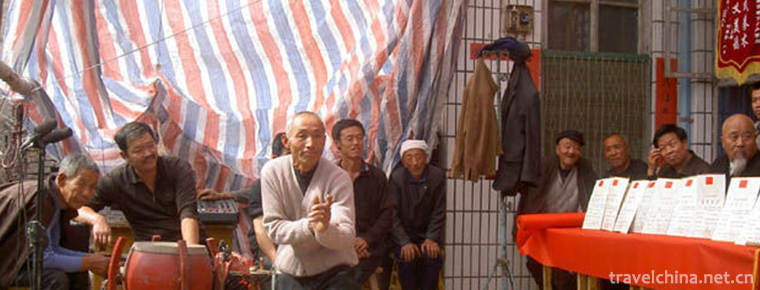
-
Wenchang chicken
Hainan Wenchang chicken, special product of Wenchang City, Hainan, China national geographical indication product. .
Views: 222 Time 2018-11-05 -
qingming riverside landscape garden
Qingming Shanghe Garden is a large Song Dynasty cultural theme park constructed by the people's government of Kaifeng City in Henan Province.
Views: 262 Time 2018-12-09 -
China Ceramic Museum
The China Ceramic Museum is located in the Cultural Square in the center of Zibo City. On the basis of Zibo Exhibition Hall in April 2001, it was transformed by large-scale investment.
Views: 126 Time 2018-12-22 -
Mixed congee
Babao, also known as Laba porridge, Buddha porridge, is a traditional Chinese Festival food. It is a kind of porridge boiled with various ingredients on Laba Festival. .
Views: 137 Time 2019-03-27 -
Dragon Pen Making Skills of White Shamao
The craftsmanship of the Dragon pen of Baishamao was originated by Chen Baisha, a famous calligrapher. It has a history of more than 500 years. Made of Maotao, a special product of Guifeng Mountain.
Views: 281 Time 2019-04-03 -
Firing Techniques of Fengxi Porcelain
Fengxi Porcelain Firing Technology, a local traditional technology in Fengxi District, Chaozhou City, Guangdong Province, is one of the national intangible cultural heritage..
Views: 770 Time 2019-04-29 -
Gengcun Folk Stories
Gengcun Folklore Gengcun Folklore, the traditional folk literature of Gaocheng City, Hebei Province, is one of the intangible cultural heritage at the national level..
Views: 125 Time 2019-05-01 -
Hangzhou Reviews
Hangzhou commentary originated from the Southern Song Dynasty, and has a history of 800 years. It is the most characteristic local traditional folk art in Hangzhou, Zhejiang Province..
Views: 181 Time 2019-05-02 -
Panwang Song
Panwang Song is a collection of Yao folk poetry. Mainly spread in the residential areas of the Yao nationality in Nanling Mountains, Jianghua is a folk literature with distinct national characteristic.
Views: 127 Time 2019-06-08 -
Siping Opera
Siping Opera, also known as Sijuan Opera, Siping Opera, Sipeng Opera and Sipeng Opera, is popular in Pingnan County, Zhenghe County, Fujian Province. It is one of the national intangible cultural heri.
Views: 104 Time 2019-06-16 -
Cao Yu pen name of Wan Jiabao
Cao Yu (September 24, 1910 - December 13, 1996) writer better known as Cao Yu Xiaoshi, Xiaoshun Jia, Han nationality, native to Hubei. Qianjiang Born in a declining feudal bureaucratic family in Tianj.
Views: 275 Time 2019-09-07 -
Shougang Institute of Technology
Shougang Institute of Technology ( Shougang Institute of Technology ), located in Beijing City Shijingshan District It is an engineering college founded mainly by the Ministry of education, mainly bas.
Views: 193 Time 2019-11-27
